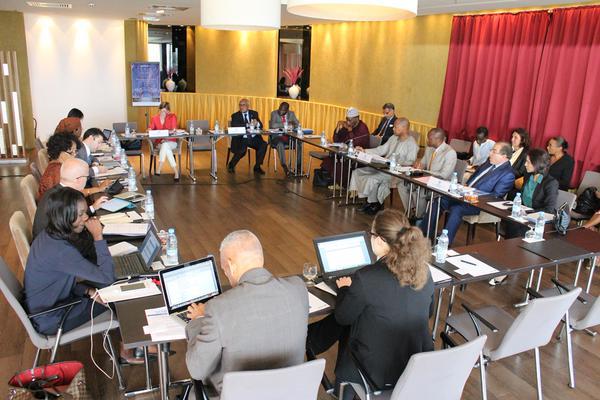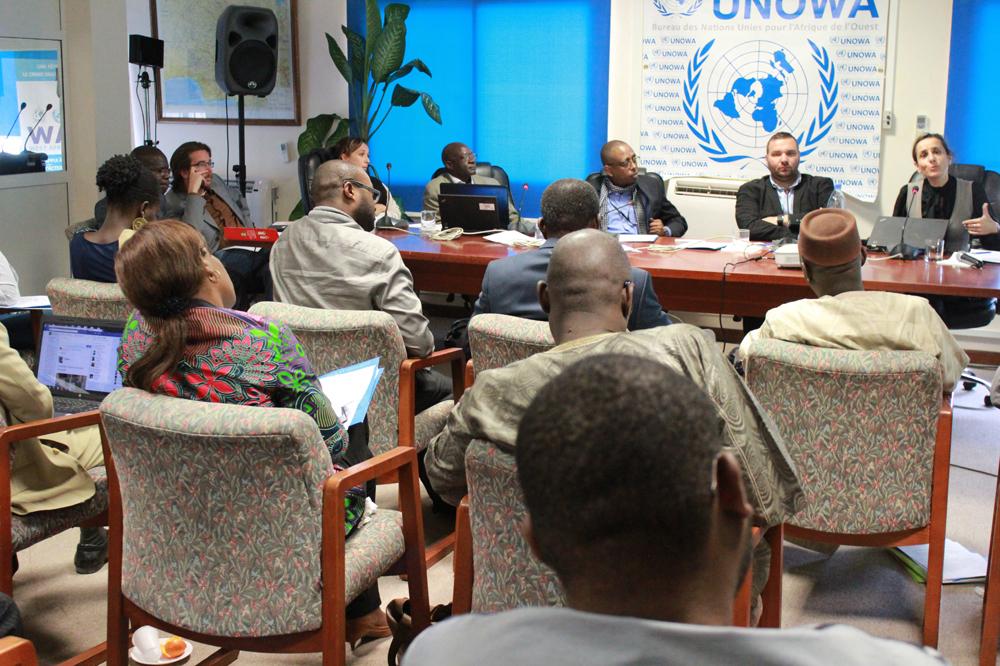Peace and stability in West Africa requires the fight against impunity and respect of Human rights at regional level
Bamako, 4 December 2011 – The Regional Conference on Impunity, Justice and Human Rights in West Africa concluded in Bamako (Mali) with the adoption of a Declaration and a Regional Roadmap, to support the efforts of the Economic Community of African States (ECOWAS) and States of the sub-region towards justice, peace and stability.
The conference took place within the framework of the 10th anniversary of the ECOWAS Protocol on Democracy and Good Governance. It was organized under the auspices of the United Nations Office for West Africa (UNOWA) in close collaboration with the United Nations System in particular the Office of the High Commissioner for Human Rights (OHCHR), the United Nations Office on Drugs and Crime (UNODC), the United Nations Development Programme (UNDP), the United Nations High Commissioner for Refugees (UNHCR) and with the support of Government of Mali, ECOWAS, the International Organization of the Francophonie (OIF) and the African Union (AU).
Over 200 participants attended the conference including Ministers of Justice in the sub-region and representatives of Supreme Courts, Truth and Reconciliation Commissions, sub-regional and regional organizations, notably the African Union, ECOWAS and the Mano River Union (MRU); United Nations peace missions and Agencies; the International Criminal Tribunal for Rwanda; national human rights institutions, civil society organizations and the media.
The Declaration provides concrete and innovative recommendations to strengthen good governance, and the rule of law, with a view to prevent conflicts. The thematic recommendations include the consolidation of the rule of law, measure to reinforce national justice systems in complementarity of international justice, the ECOWAS Court of Justice, the promotion of human rights, the role of the media and the fights against organized crime, illicit trafficking and piracy.
In the preamble, the participants declarethat “justice is the basis of democracy, the protector of the rule of law and cannot be dissociated from the protection and promotion of human rights and the fight against impunity; and that it is imperative to reinforce it on national, sub-regional and international levels in accordance with universal principles and standards”. They call for the ratification and implementation of the regional and international legal instruments.
The Declaration calls for a stronger commitment and political will to end impunity and fight corruption, which is a major source of impunity.
The Declaration also calls for the promotion of transitional justice mechanisms such as the truth and reconciliation commissions while ensuring that justice is at the heart of the reconciliation process. States are encouraged to promote and value traditional justice through research on its content, methodology and lessons learned as well as its convergence with international norms, with regard to respect and protection of human rights.
The Declaration pleads for a greater harmonization of the legal instruments at sub-regional level and collaboration at regional and international levels to address insecurity, human rights violations as well as increasing transnational and cross border treats in West Africa.
With regard to transnational organized crime, the participants underlined the need for the countries of the sub-region to join efforts towards integrated responses for law enforcement and judiciary actions. The declaration recommends developing a regional strategy aiming at strengthening judiciary cooperation between States in order to facilitate the prosecution of criminal groups which remain unpunished due to corruption and intimidation on competent authorities. The strategic framework includes the creation of specialized regional center protected against intimidations.
The declaration encourages governments and stakeholders to develop national roadmaps for their respective countries in order to ensure effective implementation of the recommendations of the strategic framework adopted by the conference with the support of OIF and the UN.
+++++++++
For more information : Laurence Gerard, Public Information Officer - Office of the Special Representative of the Secretary-General for West Africa – O: +221 33-869-8560 – M: +221 77-332-4928 – gerardl@un.org – unowa.unmissions.org





